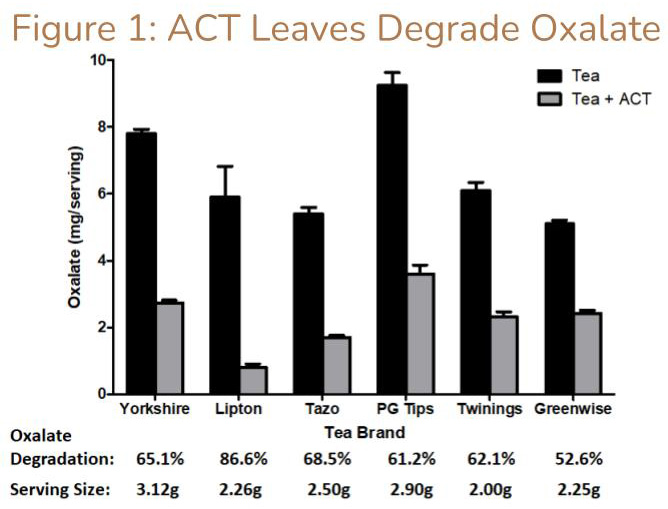Back
Poster, Podium & Video Sessions
Moderated Poster
MP05: Stone Disease: Basic Research & Pathophysiology
MP05-14: Raise Your Glass! American Chestnut Leaves Can Reduce Tea Oxalate Content
Friday, May 13, 2022
8:45 AM – 10:00 AM
Location: Room 225
Bergen Lemack*, Willim Donelan, Tania Quesada, Gainesville, FL, Dakota Matthews, Syracuse, NY, Saeed Khan, Vincent Bird, Gainesville, FL, William Powel, Syracuse, NY, Benjamin Canales, Paul Dominguez-Gutierrez, Gainesville, FL

Bergen Elliot Lemack, BS
University of Florida
Poster Presenter(s)
Introduction: Throughout the 19th century, American chestnut tree (ACT) leaf teas were commercially available and widely used to treat coughs and colds. However, in the early 20th century, the ACT became functionally extinct due to a fungus called “chestnut blight.” As part of the initiative to restore ACT in the US, a blight-tolerant ACT was developed with enhanced production of oxalate oxidase (OxOx), an enzyme capable of degrading soluble oxalate. Since many stone formers avoid tea due to its high oxalate content and potential to raise stone risk, we investigated the addition of enhanced ACT leaves to commercially available teas to reduce oxalate content.
Methods: A total of 6 teas were brewed per manufacturer's recommendations using calcium/magnesium free phosphate buffered saline (PBS).To assess oxalate reduction, 250mg of tea with 250mg of ACT leaves were steeped in 25ml of boiling PBS for 5 min. As a reference, total oxalate was determined from 0.5g of each tea using the acid extraction method. Oxalate was measured using the Trinity Biotech Oxalate Assay.
Results: The tea contained 5.1 to 9.3 mg of soluble oxalate per serving (Fig 1). When ACT leaves were steeped with the tea, soluble oxalate was reduced by 52.6% to 86.6%.
Conclusions: Our results indicate that OxOx enhanced ACT dried leaves have the potential to reduce oxalate content found in several commercially available tea products. American Chestnut leaves alone, or in combination with other tea leaves, may be an alternative tea-product for stone formers who wish to enjoy the health benefits of tea without the potential kidney stone side effects.
Source of Funding: none

Methods: A total of 6 teas were brewed per manufacturer's recommendations using calcium/magnesium free phosphate buffered saline (PBS).To assess oxalate reduction, 250mg of tea with 250mg of ACT leaves were steeped in 25ml of boiling PBS for 5 min. As a reference, total oxalate was determined from 0.5g of each tea using the acid extraction method. Oxalate was measured using the Trinity Biotech Oxalate Assay.
Results: The tea contained 5.1 to 9.3 mg of soluble oxalate per serving (Fig 1). When ACT leaves were steeped with the tea, soluble oxalate was reduced by 52.6% to 86.6%.
Conclusions: Our results indicate that OxOx enhanced ACT dried leaves have the potential to reduce oxalate content found in several commercially available tea products. American Chestnut leaves alone, or in combination with other tea leaves, may be an alternative tea-product for stone formers who wish to enjoy the health benefits of tea without the potential kidney stone side effects.
Source of Funding: none


.jpg)
.jpg)